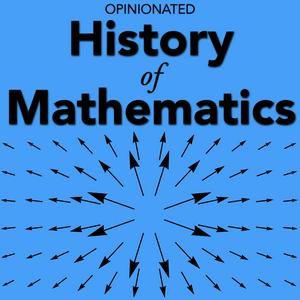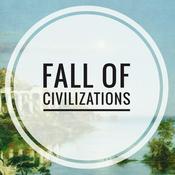40 Episoden
- Archimedes’s emblematic death makes sense psychologically and embodies a rich historical picture in a single scene. Transcript Archimedes died mouthing back at an enemy soldier: “Don’t disturb my circles.” Or that’s how the story goes. Is this fact or fiction? We have third-hand accounts at best so there is plenty of room for doubt. But … Continue reading Death of Archimedes
- There is nothing counterintuitive about an infinite shape with finite volume, contrary to the common propaganda version of the calculus trope known as Torricelli’s trumpet. Nor was this result seen as counterintuitive at the time of its discovery in the 17th century, contrary to many commonplace historical narratives. Transcript Torricelli’s trumpet is not counterintuitive. Your … Continue reading Torricelli’s trumpet is not counterintuitive
- Copernicus’s planetary models contain elements also found in the works of late medieval Islamic astronomers associated with the Maragha School, including the Tusi couple and Ibn al-Shatir’s models for the Moon and Mercury. On this basis many historians have concluded that Copernicus must have gotten his hands on these Maragha ideas somehow or other, even … Continue reading Did Copernicus steal ideas from Islamic astronomers?
- Einstein’s theory of special relativity defines time and space operationally, that is to say, in terms of the actions performed to measure them. This is analogous to the constructivist spirit of classical geometry. Transcript Oh no, we are chained to a wall! Aaah! This is going to mess up our geometry big time. Remember what … Continue reading Operational Einstein: constructivist principles of special relativity
- Reviel Netz’s New History of Greek Mathematics contains a number of factual errors, both mathematical and historical. Netz is dismissive of traditional scholarship in the field, but in some ways represents a step backwards with respect to that tradition. I argue against Netz’s dismissal of many anecdotal historical testimonies as fabrications, and his “ludic proof” … Continue reading Review of Netz’s New History of Greek Mathematics
Weitere Geschichte Podcasts
Trending Geschichte Podcasts
Über Opinionated History of Mathematics
History of mathematics research with iconoclastic madcap twists
Podcast-WebsiteHöre Opinionated History of Mathematics, Grätzlgeschichten und viele andere Podcasts aus aller Welt mit der radio.at-App

Hol dir die kostenlose radio.at App
- Sender und Podcasts favorisieren
- Streamen via Wifi oder Bluetooth
- Unterstützt Carplay & Android Auto
- viele weitere App Funktionen
Hol dir die kostenlose radio.at App
- Sender und Podcasts favorisieren
- Streamen via Wifi oder Bluetooth
- Unterstützt Carplay & Android Auto
- viele weitere App Funktionen


Opinionated History of Mathematics
Code scannen,
App laden,
loshören.
App laden,
loshören.


































